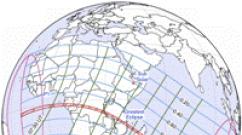Review of modern technologies for processing municipal waste. MSW processing: methods and technologies
* Calculations use average data for Russia
1. INTRODUCTION
Waste in the general sense are substances (or mixtures of substances) that are recognized as unsuitable for further use within the framework of existing technologies, or after domestic use products.
All waste can be classified according to several criteria:
Origin
industrial / production (fuel and energy complex, metallurgy, etc.)
utilities
medical
Composition
technogenic
biological
-
gaseous
By hazard class (for humans and/or environment); v Russian Federation adopted the following classification
Class 1 - extremely dangerous
Class 2 - highly dangerous
Grade 3 - moderately dangerous
Grade 4 - low-risk
Class 5 - practically harmless
2. INDUSTRY ANALYSIS
On average, about 3.5 billion tons of waste is generated in Russia annually, 40 million tons or 16% of which is the so-called solid municipal (or household) waste. Currently, 10% of this volume is utilized, of which 3% is burned, 7% goes to industrial processing. The potential for the processing of MSW is currently estimated at 14 million tons. About 90% (more than 35 million tons of garbage) are taken to landfills for disposal.
Figure 1. Structure of waste in Russia

Figure 2. Structure of MSW in Russia

Figure 3. Structure of the MSW processing market

According to the statistical data obtained during the market analysis, the following facts can be distinguished:
15-20 million tons of organic waste end up in landfills annually, which is 30-40% of the total volume of organic fertilizers used agriculture in Russia
the annual volume of paper and cardboard waste (about 15 million tons) is three times the volume of pulp produced in Russia
the annual volume of glass waste (3.1 million tons) is almost equal to the volume of glass containers produced in Germany
about 11.3 million tons are irretrievably lost during disposal, which is equivalent to the volume of production of paper and cardboard in Finland, which is the main exporter of this type of goods
required investment in development recycling in Russia, as a result of which it is possible to achieve processing at the level of 40% of the total - 44 billion euros
The composition of MSW theoretically allows using 60-80% of the total volume as a raw material for industry (35-45%) or for composting (25-35%). However, due to the lack separate collection garbage, it is not possible to extract this volume. Sorting transported MSW in a mixed container allows you to get no more than 11-15% secondary resources. Biodegradable (organic) waste in this case is almost impossible to use.
The market for the collection and processing of waste of all kinds is considered one of the most profitable. In Russia today, recycling primarily refers to the storage of municipal solid waste at landfills. At the same time, processing as such does not occur. In small volumes, electronic waste is processed, the share of polymer waste, which is associated with an easier further use of processed products and demand for them.
Thus, the main beneficiaries of the market today are landfill owners. According to experts, in 2016, only 5 million tons of garbage fell into the landfills of the Moscow region, and the revenue of the landfills amounted to 1.5 billion rubles. Thus, it can be calculated that the cost of unloading 1 ton of garbage is 300 rubles. Storing waste in landfills harms the environment, but it is a much cheaper way to dispose of it than recycling.
Another trend of the market today is the competition of operators that carry out the removal of household waste. In some regions (for example, Novosibirsk, Perm), this leads to problems that affect, first of all, the population: garbage is not taken out for weeks, spontaneous dumps appear within residential areas.
In 2016, the Government considered the possibility of monopolizing the waste collection market in the regions. According to the draft law, a monopoly operator responsible for waste collection is determined in each region; it will handle all municipal solid waste, as well as waste equivalent to it, such as waste from business centers. The operator has the right to hire subcontractors to perform part of the work. From the point of view of the Government, this will streamline the activities of operators and increase their responsibility. From the point of view of waste processors, such a move will negatively affect the recycling and recycling market. In particular, because the monopolist will be able to set inflated prices for the delivery of collected waste to processors.
Ready-made ideas for your business
According to processors, the structure of work in the market today is built incorrectly, which complicates the process of recycling and scares off many new players. In particular, often waste is purchased from resellers, and not directly from the operator, which affects the price. One of the important links is missing - the purveyors who collect waste from the population and pre-sort it. Garbage is now practically not sorted - only in some places there are bins for separate collection of garbage. Some places should be understood as some shopping centers and individual quarters of some cities in Russia - that is, less than one percent of the total.
Processors also note a significant shortage of raw materials, production capacity for processing, for example, PET containers are loaded by 50-60%. This is due to the low quality of the purchased raw materials, which require additional sorting, which entails financial and time costs. In some cases, processors enter into direct contracts with organizations for the collection of waste, as well as independently install bins for a certain kind waste in residential areas of cities.

It is theoretically possible to increase the amount of waste that goes to processors in the absence of an intermediate link of resellers, when raw materials will directly go from the regional operator to the processor. However, even with such a scheme, there is a danger that the operator will be able to set inflated prices, at which it will be unprofitable to work. The emergence of a monopoly operator will also automatically make it impossible for processors to independently collect garbage from the population directly.
According to experts, 1,200 thousand tons of electronic and electrical equipment waste is generated annually in Russia. According to the Association of Recyclers of Electronic and Electrical Appliances, only 70,000 tons are recycled per year. In this segment, the following trend is observed: in order to save money, the population rents old equipment not to specialized processors, but to organizations that procure ferrous and non-ferrous scrap. This situation has a negative impact on the environment.
Ready-made ideas for your business
Among the positive news in this segment is the creation of a technology that allows you to dispose of climate and refrigeration equipment without loss of freon and other refrigerants that destroy the ozone layer, which was previously impossible. In addition, the technique is completely recycled, down to polymers.
Owners of landfills are also interested in slowing down the development of separate waste collection, often having their own fleet of vehicles, which allows them to earn even an order of magnitude more. The situation can only be corrected state regulation if norms for the separate collection of household waste are adopted. Today, these issues are the responsibility of local beautification committees, which regulate waste collection rates. Market participants believe that the main motivating factor for the population will be the difference in tariffs for the removal of separately collected and mixed waste. At the same time, the difference should be very significant in order to force the population to go for additional labor costs when sorting.
The problems of the market include a significant part of the shadow sector. According to reports, recycling in the country is practically not carried out. In fact, without real reporting, it is impossible to introduce adequate tariffs.
Changes that took place in the legislation in 2015-2016:
FAS has approved Guidelines on the calculation of regulated tariffs in the field of municipal solid waste management"
The Ministry of Construction of Russia has completed the development of by-laws that define a clear procedure for the collection, transportation, processing, neutralization, disposal and disposal of MSW
The Ministry of Construction of Russia made a proposal to change the legislation on waste:
inclusion in the list of expenses of the regional operator sorting of solid municipal waste
clarification of the rules for making payments for negative impact on the environment
The Federal Service for Supervision of Natural Resources approved the form for calculating the amount of the environmental fee
Ready-made ideas for your business
2017 is declared the Year of Ecology in Russia; the cost of holding events dedicated to the Year of the Environment is estimated at 194 billion rubles
Regulations on licensing of work with waste approved
A list of waste to be disposed of has been formed
There is a ban on burial:
from January 1, 2017 - scrap and waste of ferrous and non-ferrous metals, as well as waste of equipment and other products containing mercury
from January 1, 2018 - waste of paper and cardboard, tires, tires, car inner tubes, as well as waste products from thermoplastics, glass, glass products
Municipalities introduce firm tariffs for waste collection and transportation
It is mandatory to introduce the development of territorial schemes in the field of waste management in the regions
It is mandatory to select a regional waste management operator
According to the Federal Antimonopoly Service, the market is characterized by very low competitiveness, especially at the regional level. Based on the results of the study, the following conclusions were drawn for cities with a population of more than 100 thousand people:
45% of cities - waste collection activities are carried out by one economic entity, mainly municipal enterprises
39% of cities - activities are carried out simultaneously by two or three entities
At the same time, a significantly larger number of entities, in particular, small businesses, operate in the market for sorting and processing of solid waste. The main activities carried out by these enterprises:
Collection and transportation of MSW to the sorting site
Sorting of waste with the selection of those types that can be processed further (scrap fractions)
Waste fraction pressing
Removal of unused waste for disposal
As a result of this activity, briquetted waste is obtained. In the case of separate collection of garbage and in the absence of the need for additional work on sorting, the output of the briquetted waste fraction sent industrial enterprises for further processing, can account for up to 97% of the total volume of garbage; the remaining 3% is sent for burial or destruction.
The prospects for the waste market experts include the following:
The volume of the waste processing market is up to $3.5 billion per year, of which MSW is $1.5-2.0 billion
a small number of waste processing plants (about 250), waste sorting complexes (about 50), waste incinerators– (11), which means great opportunities for growth
Main processing plants located mainly in large cities (especially in Moscow)
Lack of full-cycle processing plants
Fixed tariffs of municipalities for the collection and transportation of waste
Flaw modern technologies and waste management mechanisms
Changes in the legislation of the Russian Federation
All these factors make the sphere of investment in waste processing in Russia promising and attractive. The largest number of companies operate in the field of transportation of household waste, or specialize in the processing of one type of waste (waste paper, plastic).
With low competition, the cost of entering the household waste recycling market is quite high - from 2 million euros for opening a waste sorting complex and from 20 million dollars for building a waste processing plant. Most profitable view business today is a specialization in the processing of a certain type of waste, but only if there is guaranteed access to this waste.
Denis Miroshnichenko
(c) - portal of business plans and guides for starting a small business
49 people are studying this business today.
For 30 days this business was interested in 22006 times.
Profitability calculator for this business
rent + salaries + utilities, etc. rub.
![]()
The pea market in Russia is showing growth. Since domestic needs are 99% satisfied, exports are growing at the highest rate (+124.6% compared to 2014).

Estimated market capacity of quail meat Rostov region in kind amounted to 21.22 tons/year. Therefore, the market capacity of quail meat in terms of price is about...

According to experts, the online learning market in Russia shows an annual growth rate of 25%. At the same time, the volume Russian market is only 10.5 billion rubles in 2016, while ...

Given the long-term development programs for the industry, we can conclude that it has significant development potential and high investment value.

To date, the most popular loyalty programs in Russia are discount and discount-accumulative. Their advantages are the greatest comprehensibility for the consumer and the ease of...
A new service from 2017 is the management of municipal solid waste. What is the difference with MSW and MSW, what changes does this entail and what is the management company obliged to do
The term "municipal solid waste" itself was introduced on January 1, 2016. For the first time this was reflected in the Housing Code of the Russian Federation, in Art. 154 states that MSW is a public service. Then the legal framework began to be developed, which at the time of 2017 consists of:
- MSW handling rules,
- changes in the Rules for the provision of public services<...> №354,
- also big influence reforms in the area of MSW are influenced by environmental laws.
Responsibility for waste management
Renders this public service regional operator together with the management company. Responsibilities are divided as follows:
- The management company is obliged to maintain container sites, monitor the cleanliness and correct placement;
- The operator himself takes out the garbage to landfills or other designated waste collection points.
- If the MKD does not have centralized system drainage, then the removal of liquid waste remains on the shoulders house manager organizations.
MSW in the receipt goes in a separate column, now they are not included in the maintenance of common house property.
What does the operator do, except take out the garbage? It bears all responsibility for the full cycle of processing: waste acceptance (removal from sites), transportation (transportation to a landfill and the like), processing and disposal, as well as disposal (there are separate regulations for this).
Transition time to new orders
The question is when the regional MSW operator will be able to start its work. To conclude an agreement, you need:
- so that a single tariff for the treatment of MSW is formed in the region - then payment for MSW will be more transparent;
- conclude an agreement for the removal of MSW between the operator and the administration.
- the house, through the Criminal Code, concludes a standard agreement for the treatment of MSW.
The way the contract is concluded is different:
- if he manages the house of the Criminal Code, then an MKD management agreement is drawn up.
- if the house is managed by the HOA, etc., then an agreement is drawn up for the provision of public services.
- frequent houses can also conclude an agreement with the operator, directly themselves.
But it will always be an agreement directly with the owners of residential premises and other things.
Norms and requirements
The handling of MSW is governed by rules, the violation of which entails the termination of the contract and fines. When it comes to waste disposal, the main thing is how often it is removed. Agree that having container bins piled up in the yard is still a pleasure.
The frequency of removal depends on the ambient temperature and is divided into the cold and warm seasons (the average daily temperature must be below or above 5°C, respectively):
- at least 1 time in 3 days in winter;
- daily in summer.
Deviations from the deadlines should not exceed 72 hours for the entire month (in the sum of all times), and once it is permissible to delay garbage collection for 24 hours in warm weather and 2 days in cold weather. For violation of the terms there are penalties - a reduction in the amount of payment. Every 24 hours in one billing period is minus 3.3%.
MSW in receipts

- goes on a separate line; payment for solid waste should be excluded from the composition of the receipt.
- the fee is distributed according to the number of people registered in the house or the size of the dwelling (depending on the method adopted in your subject).
- the price also depends on whether separate collection of MSW is organized for this house.
The difference between MSW and MSW
What is the fundamental difference between MSW and MSW, that the authorities have introduced a new service and cancel the old one from January 1, 2019?
- solid household waste
- municipal solid waste
In general, there is no fundamental difference between them. This is the same garbage that we take out to container sites. Previously, the definition said that it was only residential waste, which was different for residential premises. And now the standard takes into account the rate of accumulation and is set not according to the principle of residential / non-residential, but for different consumers in different ways. That is, the average family and a cafe on the ground floor of the house will accumulate garbage, obviously, from different speed. Therefore, the first will pay less, and the owner of the cafe - more.
The issue of disposal of municipal waste is becoming more and more acute for the inhabitants of the Earth. So that the time "X" for all of us does not come, when the garbage "covers" the cities, on this moment there are dozens of IT and technology companies in the world that solve digitalization issues in the field of MSW transformation. It is for them that the future lies in solving one of the most serious environmental issues humanity.
Recently, the results of a study by the international consulting company Frost & Sullivan were published, according to which by 2020 the volume of the global market for digital transformation technologies in the field of municipal solid waste (MSW) management in monetary terms will increase to 3.6 billion dollars, compared with 3 3 billion dollars in 2017. At the same time, the compound annual growth rate (CAGR) of this market will be 2.74%.
Global trends in solving the issue of waste disposal
Study authors TheImpactofDigitaltransformationontheWasteRecyclingIndustry write that the development of the market for digital solutions in the waste processing industry is proceeding in four main areas:
- Production of smart systems for waste collection (the so-called "smart containers"),
- Optimization of supply chains and equipping the fleet with specialized software and sensors (“smart garbage collectors”),
- Production and implementation of intelligent systems for the processing and disposal of MSW,
- Development and application cloud technologies and user interfaces.
As of October 2018 the largest number smart technologies and equipment for waste management are being developed in countries Western Europe and North America. In addition to "smart" containers and garbage collectors, they also include robotic systems for sorting MSW, specialized mobile applications, accounting and analytics systems, software, etc.
“The largest segment of the market remains the development of cloud computing platforms, user interfaces and software - in 2017, it accounted for $2.8 billion, while the share of intelligent MSW recycling systems was about $138 million. At the same time, the pace of digitalization in the recycling segment remains one of the highest - according to our forecasts, by 2020 market will amount to $232 million,” says Alexey Volostnov, Managing Director of Frost & Sullivan in Russia.

World market volume digital technologies in the segments of software development and intelligent systems for MSW processing, USD mln. Source: Frost & Sullivan
Moreover, Frost & Sullivan analysts name several main trends in the market for digital transformation technologies in the field of MSW management:
Presenting the project passport, Vladimir Yakushev, Minister of Construction, Housing and Communal Services, emphasized that this is only “a starting document that outlines guidelines. We are ready to discuss and polish it.” For this reason, the draft text has not yet been published.
But it should be noted already now that the project has two main goals: to provide sustainable development cities and improving the quality of life of people living and staying in cities through the digital transformation of the urban economy; increasing the efficiency of the use of municipal resources through the use of digital technologies and the expansion of public-private partnerships.
The document also includes tasks and results of the Digital City federal project. By the end of 2022, it is planned to implement the best innovative projects in the field of urban economy, selected through annual competitions, and implement a set of activities in the framework of pilot projects. And by December 31, 2024, it is planned to organize a replication system best projects, including through their inclusion in the Knowledge Base of smart cities and the introduction of state support mechanisms.
In addition, by December 31, 2024, digital platforms for managing urban resources, services for informing citizens and providing them with access to municipal services in digital form, services for involving citizens in urban decision-making, improving the efficiency of housing and communal services, taking into account new information standards, and so on.
Preliminary funding for the federal project is expected in the amount of 132.221 billion rubles.
As D-Russia.ru was told, as of mid-July, 25 municipalities from 20 constituent entities of the Russian Federation applied to participate in the Smart City, which are ready to become pilot sites for testing technologies, the list of which is given by the publication.
It is worth recalling that back in January 2018, the 17th meeting of the Professional Energy Club (PREN-club) was held, at which the members of the club discussed the problems and prospects for the transition to the best available technologies (BAT) of the energy complexes of large cities and the issues of disposal of solid utilities waste (MSW) in heat and power systems.
From 2019, it was noted at the conference, the procedure for obtaining integrated environmental permits (IEP) will begin. CEP is a mixture of programs for energy saving, environmental safety and an environmental passport.
To date, the Bureau of BAT has developed 51 reference books, all of which are posted on the bureau's website. Most directories are industry-specific. 7 pieces - the so-called. horizontal, intersectoral. The introduction of the BAT principle provides new levers for the modernization of the industry.
Sergey Beloborodov, member of the PREN Club, Vice President of the NP "Energy Efficient City", at the same time spoke about his article, in which he compared the efficiency of the energy systems of different countries with the energy system of the Russian Federation on the issue of CO2 emissions from the point of view of the structure of production electrical energy, fuel heat utilization factor (KITT), installed capacity utilization factor (ICUF) of RES, cost of electricity from RES and cost of electricity for end customers, as well as the impact of the priority of loading RES on the volume of combined electricity generation of CHPPs.
As a result, it turned out that the power industry sector of the Russian Federation is one of the world leaders in reducing CO2 emissions. Specific CO2 emissions for electricity generation (g CO2/kWh) in the whole energy system of the Russian Federation are lower than in the USA, Germany, China, significantly below the world average, and correspond to Denmark .
And from 4 to 6 October 2018 in St. Petersburg took place international Conference « MUNICIPAL WASTE MANAGEMENT AS AN IMPORTANT FACTOR IN THE SUSTAINABLE DEVELOPMENT OF A MEGAPOLIS».
As for cloud technologies as such, including with an eye to the near future, and in resolving the issue of MSW disposal, international experts say that it is with Russia that there is every chance to sign cooperation agreements. NetApp, for example, is already implementing a number of cloud projects in our country, however, so far in the financial sector, the oil and gas industry and private business. But, as Thomas Kaiser, director of NetApp in Eastern Europe, Turkey, Russia and the CIS, it is Russia that is most ready to embrace new technologies as Russian customers look one step ahead. “It seems to me that even in Europe, more traditional approaches are still being used in these industries than in Russia,” said Thomas Kaiser.
How soon this will happen, we'll see. In the meantime, on October 23-25, 2018, the Sokolniki Exhibition and Convention Center in Moscow will host the 15th Anniversary International Exhibition of Equipment and Technologies for Recycling, Waste Management and Treatment Wastewater WASMA-2018, where a seminar of industry experts will be held at the same time.
From the beginning of 2019, the system for the collection and disposal of municipal solid waste (MSW) will change dramatically. According to the Federal Law No. 458 dated December 29, 2014, the letter of the Ministry of Construction No. 45067-АЧ / 04 dated December 30, 2016, each subject of the Russian Federation will be divided into zones where regional operators will be selected for the removal and disposal of MSW.
The regional operator will be selected according to the rules established by the Post. No. 881 dated 09/05/2016. The company selected on a competitive basis will be responsible for all stages of collection, processing and disposal.
A company planning to become a regional operator must have state. registration on the territory of the Russian Federation, a set of documents for working with waste class 1-4, as well as the necessary technical, technological and transport conditions and capabilities.
In addition, the company should not be in bankruptcy, have debts and fines for violating waste laws. Preference will be given to companies that use advanced environmentally friendly waste management methods, as well as focusing on waste sorting.
Waste collection sites will be taken care of by regional operators
Selected regional operators will be responsible for all issues related to the export. In addition to the current work, they will be entrusted with the task of eliminating illegal dumps in their territory. The area of responsibility will also be the cleanliness of garbage containers at the place of collection of MSW. As a result, each discarded piece of paper will have an owner who will be responsible for its disposal.
The legal gap will disappear, due to which many garbage collection sites look unpresentable. Now the municipality is responsible for the waste collection areas located on municipal land, and the management company is responsible for the sites for garbage containers located on the adjacent territories. From 2019 this will no longer be the case. The regional operator will be responsible for all sites. It is his representative who will need to complain if there is scattered and uncollected garbage left after the garbage truck.
MSW collection will be separate
Operators will have to provide the public with enough containers to household waste. One container will collect waste to be sorted, and the other - unsorted. If these rules are violated, companies involved in the collection and transportation of waste will be charged an increased fee for accepting unsorted garbage at the landfill. In some regions, for 1 m² of garbage that has not been sorted, you will have to pay 10 times more.
Unfortunately, all the costs associated with the implementation of new laws will often be included in the cost of services and passed on to the residents. As practice shows, in many regions this is exactly what happened. Information is already being received from the regions about significant increases in fees for the removal of MSW. According to N 486-FZ of December 28, 2016, all Russians will be familiarized with the new prices for this service by July 1, 2018.
Landfills will not be issued licenses without the equipment of MSW sorting sites
Such a decision was made in many regions, including in the Leningrad region, where it was officially announced that from 2019, not a single landfill that does not have a sorting system will be able to obtain or renew a license. This will reduce the amount of MSW disposed of by 20%.
Similar decisions were made by other regions of the Russian Federation, where sorting sites are hastily erected at landfills. Many of them are built using foreign technologies that allow the extraction of recyclable materials from garbage - glass, plastic, metal, paper, rubber, electronics. This state of affairs fully complies with Order No. 1589-r dated July 25, 2017 on goods not subject to burial. Therefore, starting from 2019, Russian landfills for waste collection will be gradually converted into industrial parks with multi-stage waste sorting.
What other difficulties will arise on the way of implementation new system collection and disposal of MSW is unknown. But from 2019, all innovations will come into force, and Russia may become a country of civilized landfills.
However, this process will involve re-registration a large number permits and licensing documents. Since the procedure for collecting papers, obtaining permits and licenses is associated with large quantity controversial and uncertain issues, it is better to entrust the company providing such services.
TKO is an abbreviation that has appeared relatively recently. Previously, the name "MSW" appeared in all documents. In addition to changing the name of the waste group, some amendments were made to the law regarding the rules for handling MSW and the procedure for calculating standards. Therefore, the topic of the article is relevant for most of our population.
The concept of “municipal solid waste” (MSW) was established and defined in federal law dated December 29, 2014 No. 458-FZ(as amended on November 28, 2015). Aspects of this law govern certain requirements for waste management.
According to the law, MSW is waste that is constantly generated in residential buildings as a result of the use of any goods by residents. MSW also includes items that have become unusable in the process of their consumption by residents of houses for personal and domestic purposes. In addition to the waste that accumulates in the course of life individuals, the MSW group is made up of waste generated in the work of organizations and individuals registered as individual entrepreneurs, which, in terms of its component content, is close to waste from residential premises.

Composition of MSW
The law sets out the rights and obligations of the authorities different levels in the field of MSW management. It also contains the rules for obtaining a license by organizations that wish to collect, transport, process, and dispose of municipal waste.
In each subject of the Russian Federation, by law, special organizations must be created that perform all actions with MSW - regional operators. When choosing regional operators that are legal entities, a competition is held, as a result of which the winning organization receives permission to implement activities for the treatment of MSW in the regions of the entire subject of the Russian Federation for a period of at least 10 years.
Producers and importers of products are required by law to dispose of the waste generated after consumption of these products. If this obligation is not fulfilled, then importers and manufacturers are paid certain amount ecological collection.
This law came into force on January 1, 2015, except for some of its aspects, for which other effective dates have been determined (or changed).
Hazard Class
The entire list of types of waste that make up MSW can be found in the FKKO. According to this classification catalog, it is also possible to determine the hazard class of a particular type of municipal waste. Usually, more different groups of MSW are classified as IV or V class of waste hazard.
Handling rules
All the rules for handling MSW are detailed in the document “On MSW Handling” dated November 12, 2016 No. 1156 established by the Government of the Russian Federation. Let's get acquainted with some aspects of the Rules.
The document states that all manipulations with MSW must be carried out in conditions of safety for people and the natural environment.
The organization appointed by the regional operator draws up an agreement with consumers, according to which this organization becomes responsible for all stages of municipal waste management. The operator's activities are determined by the program of the region in the field of MSW management and are carried out in accordance with the relevant territorial scheme.
Actions related to the collection, transportation, processing, disposal, disposal and storage of MSW are carried out directly by the regional operator or with the help of other organizations dealing with waste.

MSW storage sites for consumers are determined in the contract concluded with the regional operator. Waste collection can be carried out:
- in houses in waste collection chambers equipped with special containers;
- in containers of different volumes located on specially designated areas on the street;
- in disposable (packages) or other containers provided by the operator himself.
Bulky waste should be stored:
- in bunkers on sites;
- in a specially designated area for large-scale waste.
According to the Rules, the priority technology for MSW processing is the one that allows automated waste sorting. Also, preference for waste disposal is given to technologies that provide the final production of secondary raw materials for various industries.
An important point in the processing of MSW is the exclusion from the total mass hazardous waste(I and II classes) to prevent them from entering the landfills.
Everything is in the rules possible reasons, in accordance with which the activities of regional operators may be terminated.
Savings standards
MSW accumulation standards are specified in the Decree of the Government of Russia dated April 4, 2016 No. 269.
Note! When determining normative values also accounting is carried out for garbage generated during the cleaning of adjacent territories.
For any differentiated category of objects, the standards are determined separately. To establish standard values, waste is measured in accordance with established rules.
In order to calculate the standards, special formulas are used that determine the following indicators:
- The average per day standard for the season, which can be expressed in different units of measurement depending on the use of mass or volume values.
- The average daily standard in different seasons (periods of the year), which can also be expressed in units of mass or volume per 1 calculation unit / day.
- Average monthly and annual standards.
Density
The density of MSW (formerly MSW) is determined in the process of calculating waste accumulation standards. This important indicator, for the establishment of which it is necessary to know the volume and mass of garbage. For this purpose, the accumulated waste is leveled and their parameters are measured using a special ruler. After that, MSW is weighed and the mass of the container is subtracted from the obtained value of the total mass. Using the numbers obtained, the subsequent calculation of the average density of the waste is carried out, at which it is necessary to determine daily allowance savings (depending on the number of residents), the average monthly and average annual standards, the annual rate of MSW. Only by calculating the standards, you can determine the value of the average density.
Additional Information! The above calculations must be carried out by specialists in compliance with the norms and formulas specified in our legislation. In addition, certain equipment is required to carry out such work.
MSW recycling
Every year, over 70 million tons of MSW are generated in our country. Almost all waste can be recycled. However, in Russia, most municipal waste is simply stored in landfills, the area of which is constantly increasing. This method of waste disposal is irrational both economically and environmentally. Therefore, the issue of proper processing of MSW requires close attention of the authorities and environmental services.

Consider the main methods of disposal of municipal waste that exist today.
Burial. The cheapest way. However, it has many disadvantages. When waste is decomposed in landfills external environment stand out toxic substances polluting water, atmosphere and soil. At the same time, vast territories are required, which, after the elimination of the landfill, will be unusable for a long time. When implementing this method it is necessary to follow the rules for the location of polygons: they must be created outside the boundaries settlements, recreation and water protection areas, medical institutions.
Burning. A common method today. The product of the process is ash, the volume of which is much less than the volume of MSW before incineration. The ash is usually taken to landfills. This method also has certain disadvantages associated with negative influence on ecology. Therefore, they are trying to improve it through the use of afterburning furnaces with a gas purification system and an electric power generator.

An environmentally more rational method is pyrolysis - the decomposition of waste in the absence of air at high temperatures.

Composting. A method for the decomposition of the organic component of the garbage. Its essence is to create compost heaps into which the waste is deposited. In such heaps, decomposition of organic components occurs due to the activity of microorganisms. The disadvantage of this method is that an unpleasant odor appears during the biodegradation of waste. Also, the method requires preliminary sorting of garbage.
MSW processing. Most of the waste can be recycled to produce new materials and products. The method saves Natural resources, protect the environment and obtain a cheap raw material base.

Different components of MSW are recycled in different ways.
Metal materials are sorted, pressed and packaged, after which the processed waste is sent to metallurgical enterprises for the purpose of melting down.
Plastic components serve as raw materials for the production of new products: polyester sheets and fibers, etc.
Obtained from glass residues technical glass used in construction work. In the process of processing, sorting, cleaning, drying, crushing and heating of raw materials are carried out for the purpose of further remelting.
Paper waste (together with fresh raw materials) is used to obtain new paper. The collected waste paper is sorted, cleaned, in some cases decolorized and then sent to pulp and paper mills.
From wood waste produce many building materials(for example, fiberboard, chipboard), fuel briquettes, pellets, etc.
discarded electrical devices are often a source of non-ferrous metals and polymers suitable for further use as raw materials.
Oil-containing wastes (asphalt, bitumen) are also processed.
Thus, the processing of each type of MSW is carried out using different technologies, therefore milestone This method of disposal is waste sorting.

TV correspondents talk about one of the modern landfills for MSW, located in the Vologda region, about the principles of its operation and the problems of unauthorized dumps
Innovations regarding the rules for working with MSW are not yet clear to every inhabitant of our country. The change in the name itself (MSW to MSW) and the updated process for making payments for the provision of waste management services caused a lot of controversy. Unfortunately, only outdated methods of disposal of solid municipal (domestic) waste remain unchanged.













